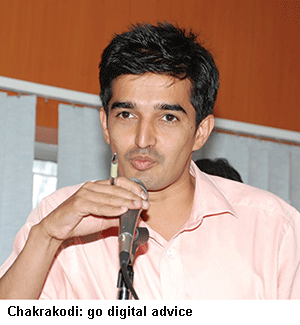 On the eve of commencement of the new academic (school) year 2018-19 which begins in June, a huge row has erupted over a suspected high price mark-ups textbooks racket.
On the eve of commencement of the new academic (school) year 2018-19 which begins in June, a huge row has erupted over a suspected high price mark-ups textbooks racket.
On May 21, a large crowd of parents of the vintage Baldwin group of three schools — Baldwin Boys High School, Baldwin Girls High School (estb.1880) and Baldwin Co-education Extension High School, (estb.2004) — all in Bangalore, protested the management’s delayed release of the schools’ prescribed list of textbooks for the new academic year. This delay prompted parents to panic purchase prescribed textbooks from well-stocked favoured vendors with 100-200 percent higher mark-ups. A case has been filed with the District Education Regulatory Authority (DERA), which is hearing it under the chairmanship of the Bangalore Urban district collector.
Meanwhile, following parents’ complaints, on May 30 the Karnataka State Commission for Protection of Child Rights ordered a sales freeze of textbooks prescribed by Baldwin schools.
Every year, parents of the 200-plus city schools affiliated with the Delhi-based Council for the Indian School Certificate Examinations (CISCE) have a harrowing time, purchasing textbooks because CISCE does not prescribe specific texts till class VIII restricting itself to drawing up syllabuses for primary classes. However, affiliated schools are permitted to prescribe specific textbooks for each subject. This liberal policy is often misused by school managements to prompt parents to purchase school-prescribed textbooks from preferred vendors with high price mark-ups.
Despite a government circular issued on January 19 directing private schools against appointing preferred vendors and forbidding higher mark-ups by Tanveer Sait, minister for primary and secondary education in the previous Congress government (whose term ended on May 12), the textbooks racket continues.
“The city’s CISCE school managements are very shrewd. They prescribe different sets of books from varying publishers every year. Therefore, the previous year’s textbooks can’t be passed on to younger children or sold. So parents are forced to buy entirely new textbooks which have only a year’s shelf life,” says a frustrated parent of two siblings.
Dr. Ravinarayan Chakrakodi, an alum of Lancaster University, UK, and English and Foreign Languages University (EFLU), Hyderabad, and currently a faculty member at the Regional Institute of English, Bangalore, and Karnataka Textbook Society’s English textbook committee chairperson, is of the opinion that in the new age of the Internet, personal textbooks have become redundant. “It is unfortunate that despite a wealth of up-to-date materials and online resources for teachers, schools are still slaves to textbooks. In technologically advanced countries, textbooks are obsolete. They make teachers resistant to change, have a negative impact on their professional development and force children to cram often outdated information and knowledge. Instead, school managements should train teachers to draw from the ocean of updated information, lectures and knowledge readily available on the world wide web to draw up their lesson plans for every subject,” says Chakrakodi.
But Chakrakodi’s proposal calls for intensive teacher training and empowerment, a long-term solution.
Meanwhile, the onus is on the laid-back officials of DERA to ensure that all CISCE-affiliated school managements release their list of recommended textbooks well in time to prevent panic last-minute purchases by parents, and also prosecute vendors charging more than the maximum retail price for textbooks. This well-oiled racket needs a spanner in the works.
Sruthy Susan Ullas (Bangalore)